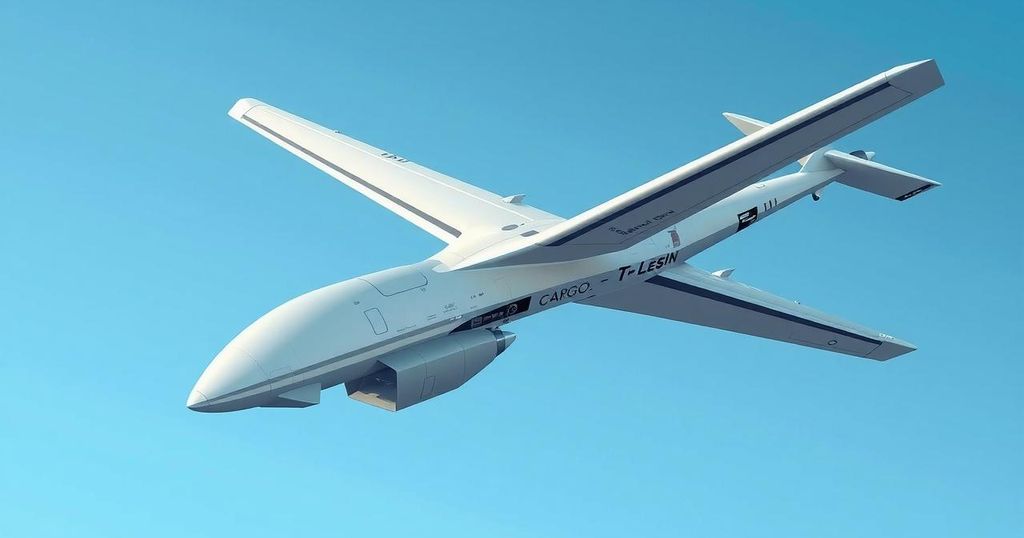Accusations Rise as China Faces Allegations of Aircraft Design Theft
The Conservative Party has accused China of stealing the design of the British BN-2T Islander aircraft for its TP1000 UAV. Britten-Norman expressed concerns regarding potential intellectual property infringement. The Chinese embassy dismissed claims as unfounded, proclaiming commitment to protecting IP rights. This row reflects broader issues in global trade and technological integrity.
A recent controversy has surfaced regarding allegations that China has stolen a British aircraft design for its new cargo drone. A spokesperson from Britten-Norman, the manufacturer of the BN-2T Islander, stated that it is “aware of a UAV [unmanned aerial vehicle] currently undergoing testing that bears a striking resemblance” to their aircraft, highlighting unique design elements consistent with their product.
The Conservative Party has voiced accusations against China after state-owned media in March reported that a Beijing-controlled company tested the drone, marking it as the first domestically produced design of its kind. The specifications of the TP1000 UAV reveal that it shares similar characteristics, such as a top speed of 315 kph and comparable wingspans with the Islander, with the Chinese drone measuring 14.9 meters and the Islander at 14.93 meters between wingtips.
Britten-Norman expressed concerns regarding the potential misuse of their intellectual property: “The Islander is a globally renowned, iconic airframe and this UAV does not have our endorsement.” They are currently investigating whether their rights have been violated and if legal action is necessary to protect their design. The Islander has been manufactured since 1965, with production recently returning to the UK after years of assembly conducted overseas.
Alicia Kearns, the shadow national security minister, condemned the alleged theft, stating, “We outright condemn the shameless theft of the iconic British Islander aircraft design by a Chinese-state company.” Kearns emphasized that global trade relies on a respect for the rule of law and pointed out that China’s economic model often involves intellectual property theft and other unfair practices.
In response, Kai Yan, a spokesman for the Chinese embassy, dismissed the claims as unfounded, asserting that “the Chinese government is committed to protecting intellectual property rights.” He emphasized the contributions of Chinese scientists and businesses toward technological innovation while also criticizing the allegations as lacking solid evidence.
According to Aerospace Global News, the TP1000 is expected to begin certification test flights by the end of the year and aims to secure a Type Certificate from China’s Civil Aviation Administration next year. Historically, China has faced accusations of targeting intellectual property, with FBI Director Christopher Wray previously stating that Beijing attempted to “ransack” the IP of Western companies to expedite its industrial progress. These consistent denials from China have included accusations against Western officials of harboring a “Cold War mentality.”
The allegations against China regarding the theft of a British aircraft design have sparked international discussions over intellectual property rights. The statement from Britten-Norman raises significant concerns about the potential infringement of their design. Responses from both British officials and Chinese representatives highlight ongoing tensions in global trade and technology, with calls for a rigorous defense of intellectual property rights against unauthorized utilization. As investigations continue, the implications for both nations’ technological advancement remain a pivotal focus.
Original Source: www.express.co.uk








Post Comment